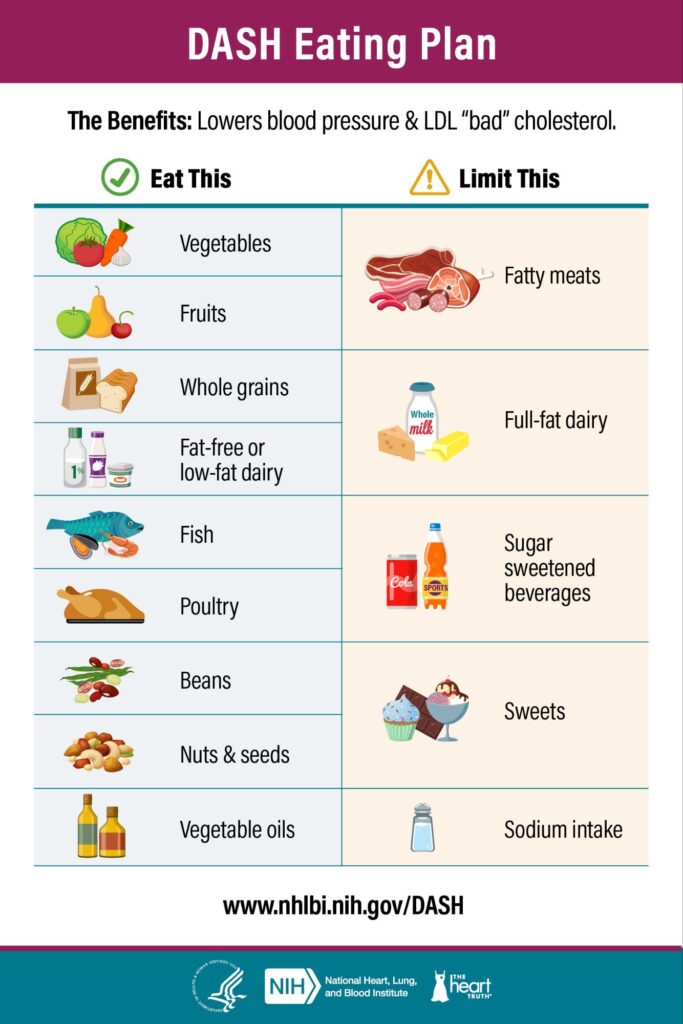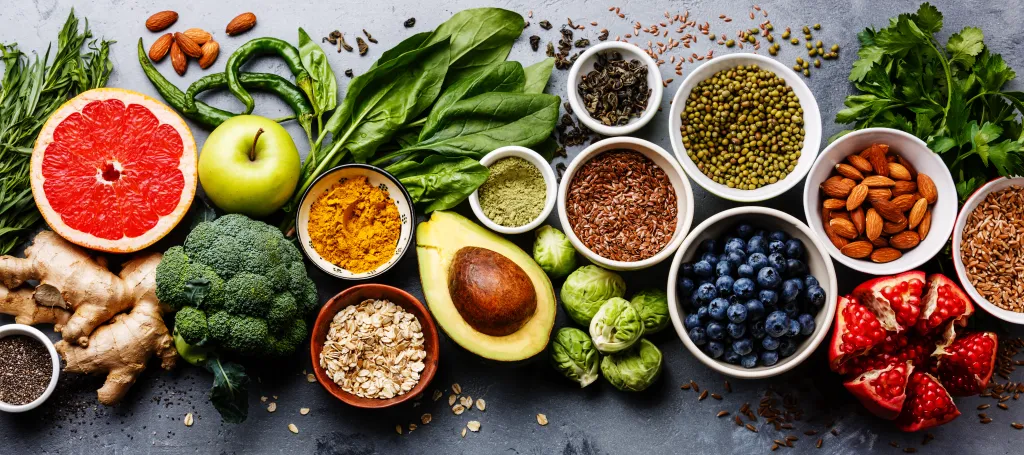Have you ever wondered why some people seem to effortlessly maintain their health and vitality well into old age? The answer may lie in their diet. Across the globe, certain dietary patterns have gained recognition for their remarkable ability to promote health and longevity. From the sun-drenched Mediterranean to the lush islands of Okinawa, these diets hold valuable insights that can help you unlock the secrets to a longer, healthier life.
The Best Diets for Longevity:
The Mediterranean Diet: Hailing from the coastal regions of Greece, Italy, and Spain, the Mediterranean diet is a delicious and nutritious way of eating that emphasizes plant-based foods, healthy fats, and moderate amounts of lean protein. This diet has been extensively studied and is consistently associated with reduced risk of chronic diseases and increased lifespan.

The Okinawan Diet: The people of Okinawa, Japan, boast some of the world’s highest life expectancies, and their diet plays a significant role in their exceptional health. The Okinawan diet is rich in vegetables, soy-based foods, and fish, while being low in calories and processed foods.

The DASH Diet: The Dietary Approaches to Stop Hypertension (DASH) diet was originally designed to help lower blood pressure but has since been recognized for its overall health benefits. This diet emphasizes fruits, vegetables, whole grains, lean proteins, and low-fat dairy while limiting sodium, added sugars, and unhealthy fats.

The Blue Zones Diet: The Blue Zones are regions around the world where people live the longest, healthiest lives. The dietary habits of these populations have been studied extensively, revealing a focus on plant-based foods, whole grains, legumes, and nuts, with limited consumption of meat.

Vegetarian and Vegan Diets: Well-planned vegetarian and vegan diets, which exclude some or all animal products, have been associated with lower risk of chronic diseases and increased longevity. These diets are typically high in fruits, vegetables, whole grains, legumes, nuts, and seeds, providing a wide array of essential nutrients.

The Common Threads:
While each of these diets has its own unique characteristics, they share several key factors that contribute to their potential health benefits:
- Embrace plant power: One of the most striking commonalities among these longevity-promoting diets is their emphasis on plant-based foods. Fruits, vegetables, whole grains, legumes, nuts, and seeds are the stars of the show, providing a wealth of vitamins, minerals, antioxidants, and fiber. These nutrients work together to protect your body against chronic diseases, support healthy digestion, and promote a healthy weight. Aim to make plant-based foods the foundation of your meals, filling at least half your plate with colorful fruits and veggies at each sitting.
- Minimize processed foods: In contrast to the standard Western diet, which is often laden with processed foods, the world’s healthiest diets prioritize whole, minimally processed ingredients. By cutting back on packaged snacks, sugary beverages, and fast food, you can significantly reduce your intake of added sugars, unhealthy fats, sodium, and empty calories. Instead, focus on whole, nutrient-dense foods that your great-grandmother would recognize, such as fresh produce, whole grains, and lean proteins.
- Choose healthy fats: Not all fats are created equal, and the world’s healthiest diets understand this principle. Olive oil, nuts, seeds, and fatty fish are celebrated for their beneficial unsaturated fats and omega-3 fatty acids, which support heart health, brain function, and reduce inflammation. Incorporate these healthy fat sources into your meals while limiting your intake of saturated and trans fats, which can be detrimental to your health.
- Moderate your meat: The role of animal products varies among these longevity-promoting diets, but one common thread is the emphasis on moderation. When consuming animal products, choose lean proteins such as fish, poultry, and eggs, while limiting your intake of red and processed meats. Consider adopting a “flexitarian” approach, where plant-based foods are the main focus, and animal products are used sparingly as a complement to your meals.
- Prioritize whole foods: One of the key lessons from the world’s healthiest diets is the importance of whole, minimally processed foods. By filling your plate with a rainbow of fruits, vegetables, whole grains, legumes, nuts, and seeds, you ensure that your body receives a wide array of essential nutrients in their most natural form. Not only do whole foods provide the building blocks for optimal health, but they also tend to be more filling and satisfying than their processed counterparts.
- Cultivate a healthy lifestyle: While diet is a crucial piece of the longevity puzzle, it’s essential to remember that it’s part of a larger lifestyle approach. The world’s healthiest diets are often accompanied by regular physical activity, effective stress management techniques, and strong social connections. Make a commitment to move your body daily, whether it’s through a brisk walk, a yoga class, or a dance session in your living room. Find healthy ways to cope with stress, such as meditation, deep breathing, or spending time in nature. Nurture your social connections by making time for friends and family, joining a community group, or volunteering for a cause you care about.
Actionable Steps:

Now that you understand the common threads among the world’s healthiest diets, it’s time to put this knowledge into action. Here are some practical steps you can take to incorporate these principles into your own life:
- Conduct a kitchen makeover: Take stock of your pantry, fridge, and freezer, and make a plan to replace processed foods with whole, nutrient-dense options. Stock up on fresh fruits and vegetables, whole grains, legumes, nuts, and seeds.
- Experiment with plant-based meals: Challenge yourself to try one new plant-based recipe each week. Look for inspiration from Mediterranean, Okinawan, or Blue Zones cuisine, and don’t be afraid to get creative in the kitchen.
- Practice mindful eating: Take the time to savor your meals, paying attention to the flavors, textures, and aromas of your food. Eat slowly, chew thoroughly, and listen to your body’s hunger and fullness cues.
- Make movement a daily habit: Find ways to incorporate physical activity into your daily routine, whether it’s taking the stairs instead of the elevator, going for a lunchtime walk, or joining a fitness class. Aim for at least 30 minutes of moderate exercise most days of the week.
- Prioritize sleep and stress management: Establish a consistent sleep schedule and create a relaxing bedtime routine to ensure you get the recommended 7-9 hours of sleep each night. Incorporate stress-reducing activities into your daily life, such as deep breathing, meditation, or spending time in nature.
- Connect with others: Make time for social connections, whether it’s through regular phone calls with loved ones, joining a book club, or volunteering in your community. Surround yourself with people who support your healthy lifestyle goals and inspire you to be your best self.

The world’s healthiest diets hold the key to unlocking a longer, more vibrant life. By embracing the common threads of these diets – a focus on plant-based foods, minimally processed ingredients, healthy fats, moderate animal product consumption, whole foods, and a balanced lifestyle – you can take control of your health and set yourself on the path to longevity. Remember, small changes can lead to big results over time. Start by incorporating one new healthy habit into your routine each week, and before you know it, you’ll be well on your way to a longer, healthier life. So, what are you waiting for? The secrets to longevity are at your fingertips – it’s time to start unlocking them today! Eating a taco here and there is fine so don’t stress about it. One day at a time!
Trusted Tools & Services
I genuinely use these every day. If you sign up through these links, we both get a win.
Lifestyle & Ridesharing
Finance & Investing
M1 Finance
Get $75 when you sign up and fund a new investment account with $100 or more.
Robinhood
Get fractional shares worth $5-$200 when you sign up and link your bank.
Chase Sapphire Reserve® & Preferred®
Earn 125,000 points with Sapphire Reserve® or 75,000 bonus points with Sapphire Preferred®.
Chase Business Cards
Earn 200,000 bonus points with Sapphire Reserve for Business℠ or up to $1,000 cash back.
Venmo
Both you and your friend earn $5 when they make a qualifying payment of at least $5.
Webull
Join today and get up to 20 free stocks when you fund your account.
Coinbase & Coinbase One
Join Coinbase. Coinbase One members get $10 off next month per referral.
Monarch Money
My favorite tool for tracking all my finances in one place. Try it free for 30 days.
Kalshi
Trade on real-world events. Sign up and we both get $25.

Love this!